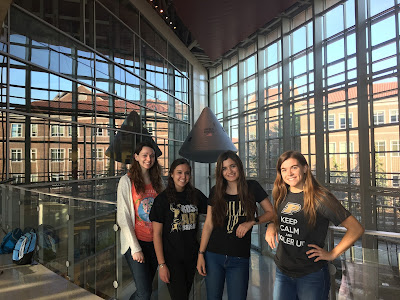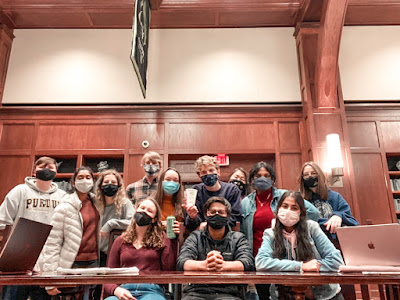The Engineering Disciplines: Why I Chose My Major (Part 1)
Industrial Engineering
I chose to study industrial engineering here at Purdue because not only is the subject matter interesting, but it is an incredibly adaptable major! Industrial engineering focuses on the optimization of systems, processes, and networks to increase efficiency, decrease cost, or otherwise address customer needs. Industrial engineers work in nearly every conceivable sector, including but by no means limited to aviation and spaceflight, healthcare, goods and services, energy, and transportation. The career path of an IE is widely varied, with many of us branching out into careers that aren’t that of a stereotypical engineer. This broadness has allowed me to feel secure as I’ve continued to explore what I ultimately want to do, knowing that wherever I end up, I will have the skills of a Purdue industrial engineering degree to propel me to success.
For more information about the Purdue industrial engineering program, including plans of study and information about Purdue’s Rethink IE initiative, visit: https://engineering.purdue.edu/IE
-Cassandra McCormack
-Cassandra McCormack
Mechanical Engineering
One of the first things you hear about mechanical engineering is that it is the broadest of the engineering disciplines. If you’re like me, that is probably the biggest reason to choose mechanical engineering. There is no one set job or role that you must commit yourself to for the rest of your life. I thought that because many jobs for mechanical engineers are in the automotive industry, I would be a mechanic for the rest of my life. This initially scared me and started making me reconsider my major. However, I found that the jobs for mechanical engineers vary so much that you could work right alongside other mechanical engineers and be doing a project that is totally unlike what they are doing. For example, you could be designing a part for a new model of car and another mechanical engineer could be designing or programming a robot that will install that part for you. Now I’m looking at Co-Op programs for companies that are based around agriculture, GPS, and insulation. Almost any industry you look at could need a mechanical engineer which means that you can make a career almost anywhere you want. You could work for the automotive industry, NASA, power companies, design prosthetics, or even work on dental equipment.
For more information about the Purdue mechanical engineering program, including plans of study and information about global engineering, visit: https://engineering.purdue.edu/ME
-Elizabeth Chattin
-Elizabeth Chattin
Biomedical Engineering
Unlike some people in First Year Engineering, I knew from the beginning that I wanted to go into Biomedical Engineering. Biomedical Engineering incorporates aspects from nearly all the engineering disciplines – including mechanical, electrical, chemical and more – and applies them to the field of healthcare and medical sciences. Biomedical engineers work on things ranging from prosthetics to complex computer systems used to diagnose patients. One of my favorite parts about Purdue’s BME school is that it is fairly small, with a class size around 96 people, which allows faculty to get to know their students and for students to form strong relationships with fellow classmates. Under Purdue’s BME curriculum, graduates have the opportunity to start a career in the biomedical field, or they can continue schooling in a graduate program or even medical school.
For more information about Purdue’s Biomedical Engineering Program such as plan of study, student organizations, and more, visit the Weldon School of Biomedical Engineering website: https://engineering.purdue.edu/BME
-Safa Chowdhury
-Safa Chowdhury
-WE Link Recruitment Project Committee: Blog
Stay Connected with WIEP!
Facebook: Purdue Women in Engineering
Instagram: @purduewiep
Twitter: @purduewiep
Blog: Purduewiep.blogspot.com
Email: welink@purdue.edu





Comments
Post a Comment